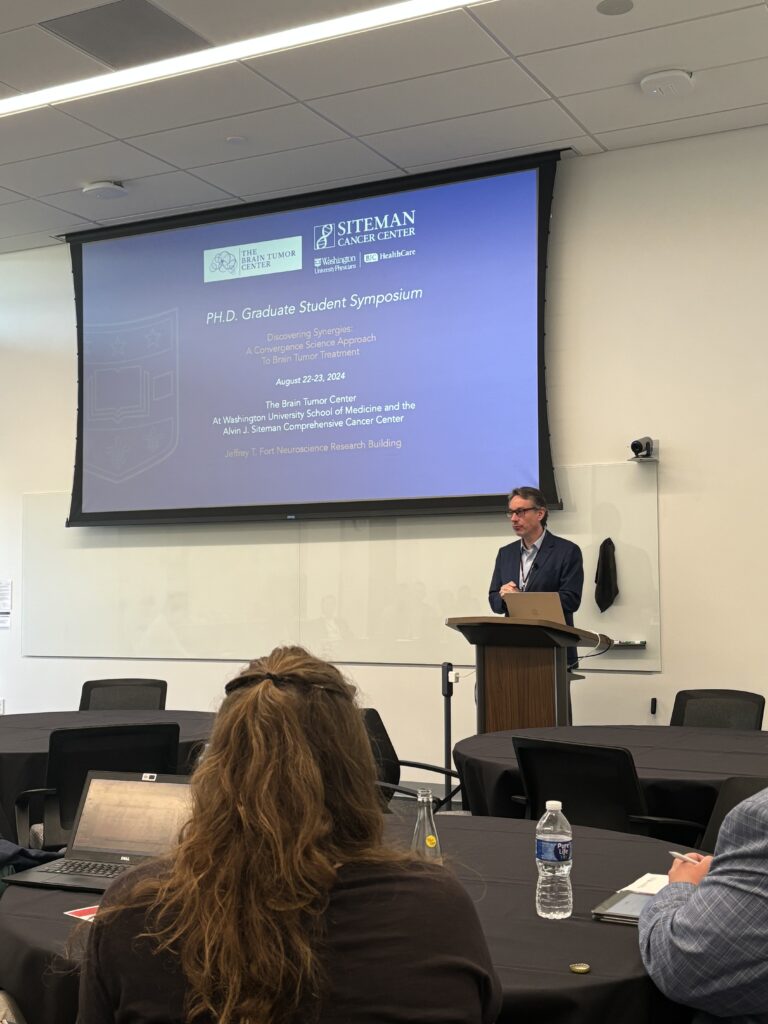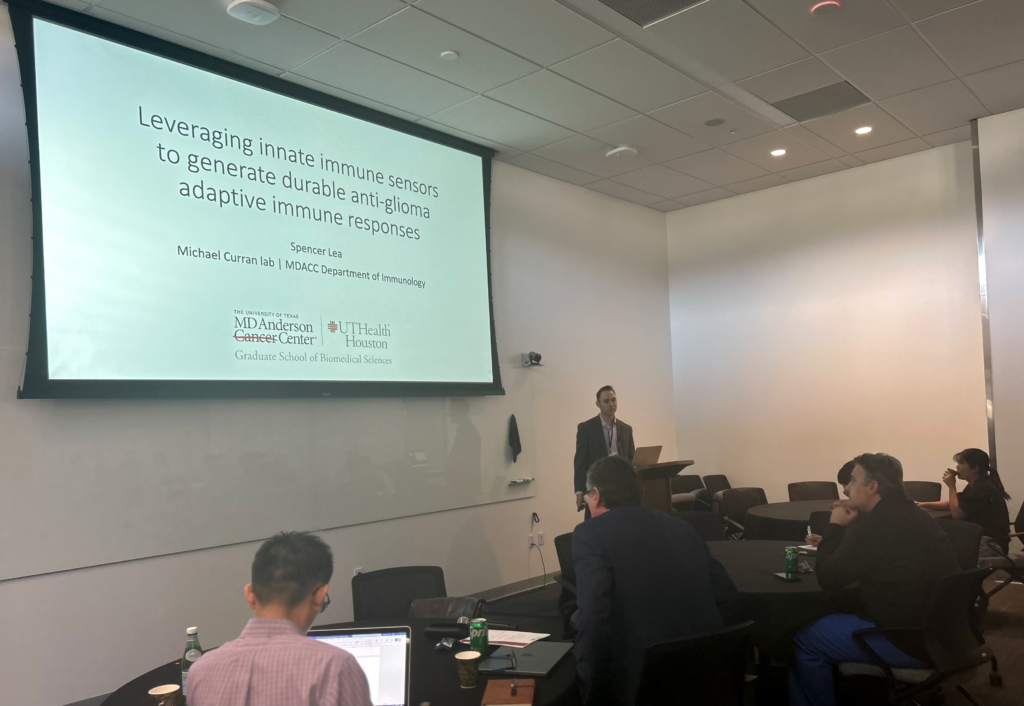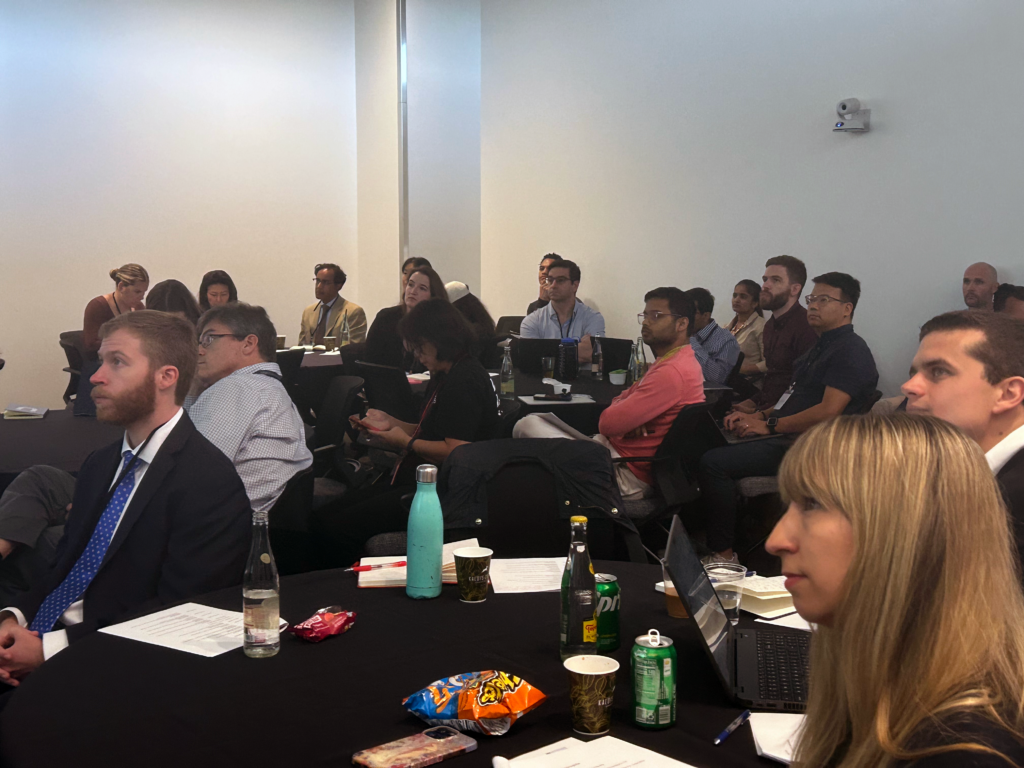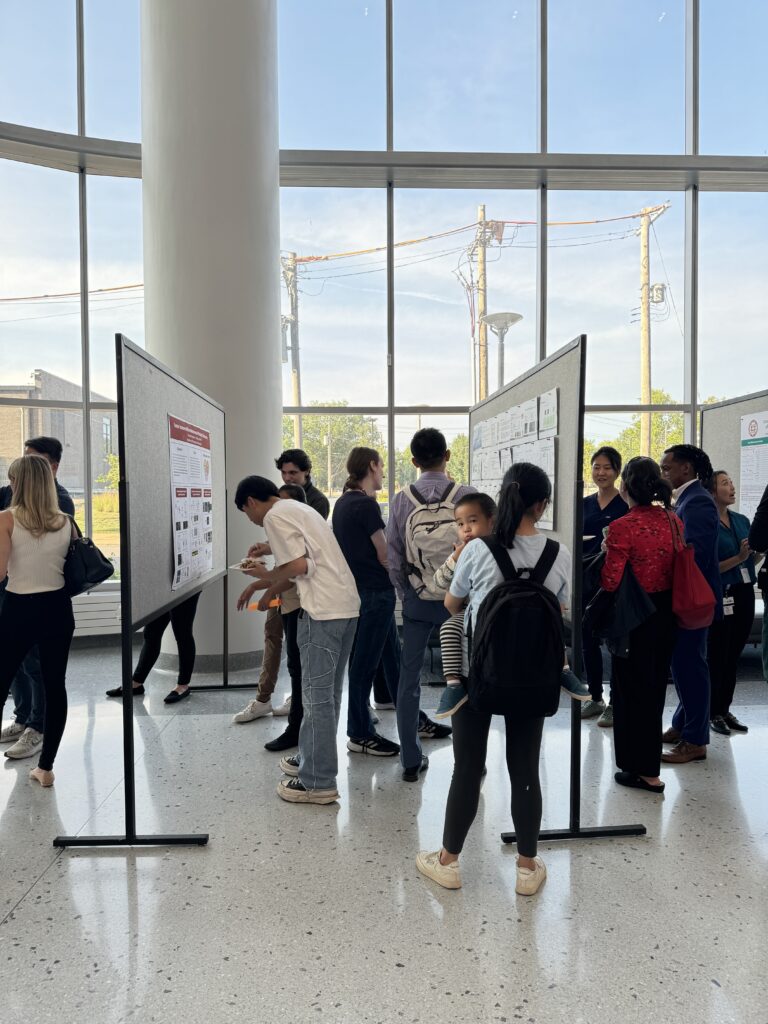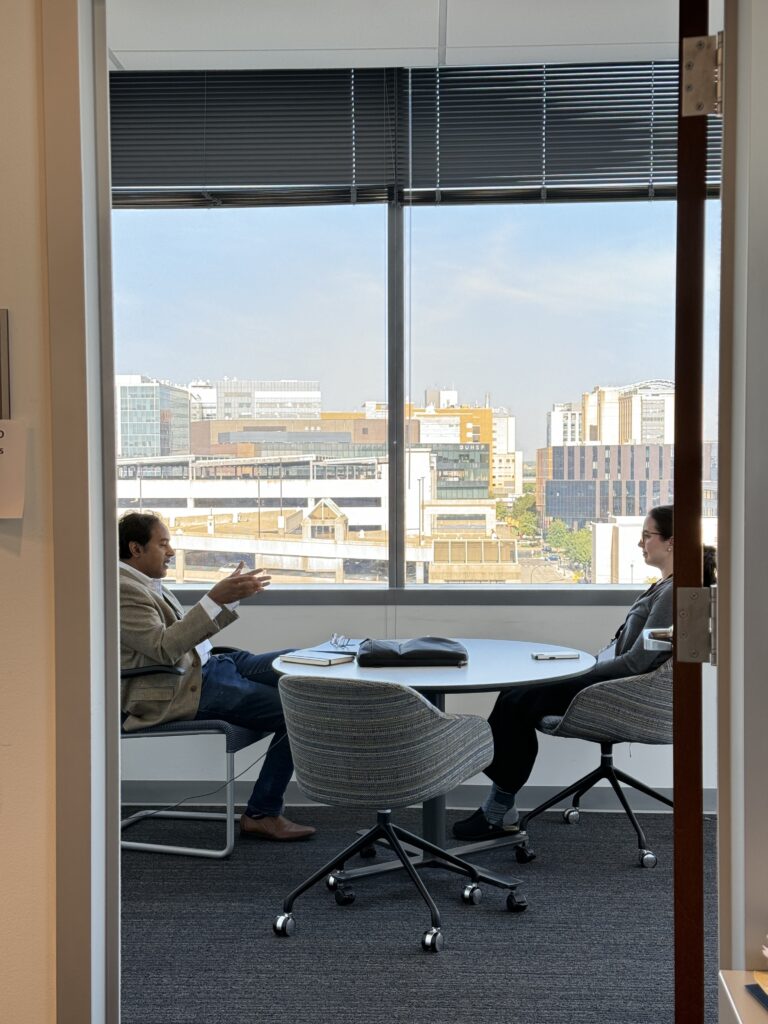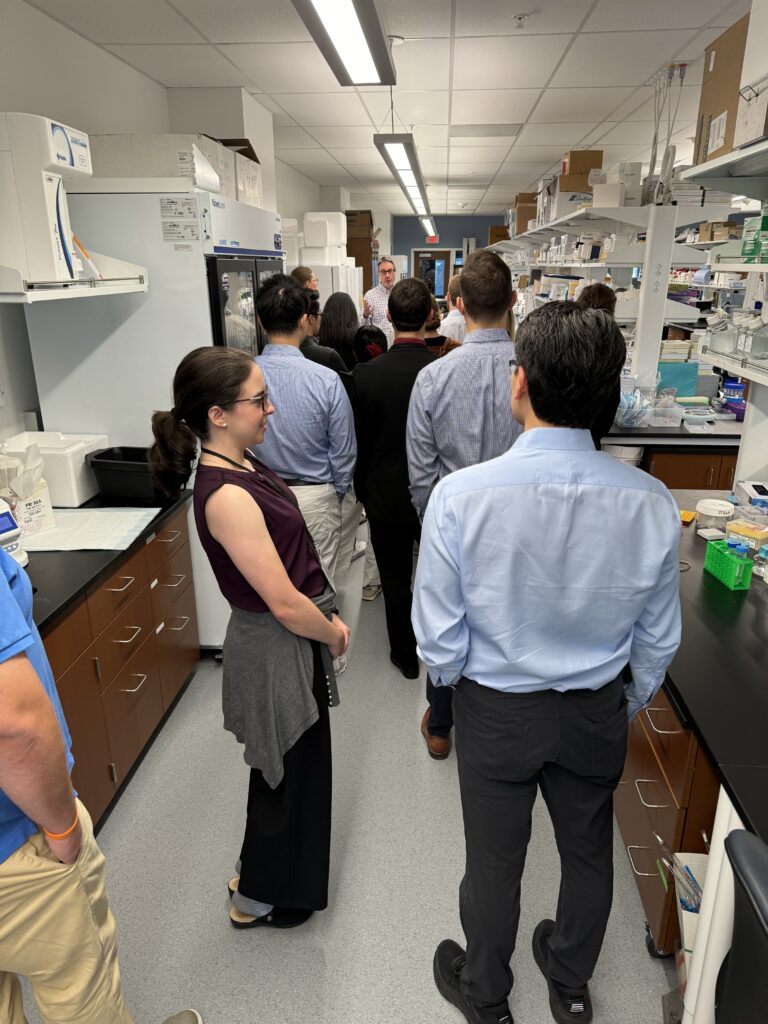Young brain cancer researchers gathered to discuss challenges, share solutions, and explore new ideas.
On August 22-23, leaders from The Brain Tumor Center (BTC) successfully hosted their first Graduate Student Symposium on Brain Cancer Research. The event brought together 15 talented graduate students from institutions nationwide, including MIT, UCLA, UCSF, Cleveland Clinic, and MD Anderson.
“We wanted to provide a platform for young researchers to share their groundbreaking work, engage in meaningful discussions, foster collaborations, build community, and receive feedback on their research and career development,” said Alex Stegh, PhD, research director of The Brain Tumor Center.
Day one of the symposium consisted of each student giving a 25-minute talk on their area of research, ranging from tumor biology and tumor immunology to engineering, computational biology and physics. The graduate students received constructive feedback from peers and WashU Medicine faculty experts on ways to improve their research and presentation abilities. After each talk, there was an interactive Q&A session and panel discussion that sparked thought-provoking conversations and provided opportunities for idea exchange. The day concluded with a poster presentation led by BTC postdocs.
“In addition to being a great career mentoring opportunity, this event was a way to enhance the national visibility of the BTC by showcasing our institutional and center strengths,” said Albert H. Kim, MD, PhD, director of The Brain Tumor Center. “PhD and MD-PhD students were able to learn about our postdoctoral fellowships, independent PI positions, industry and start-up jobs in St. Louis, and specific neuro-oncology related residencies.”
Day two included tours of the newly opened Jeffrey T. Fort Neuroscience Research Building and the Division of Neurotechnology located in the Cortex innovation district. Graduate students then took part in one-on-one meetings with a select group of BTC faculty, followed by a round table discussion that sparked stimulating conversations.
Plans to hold another Graduate Research Symposium in 2025 are being discussed.

